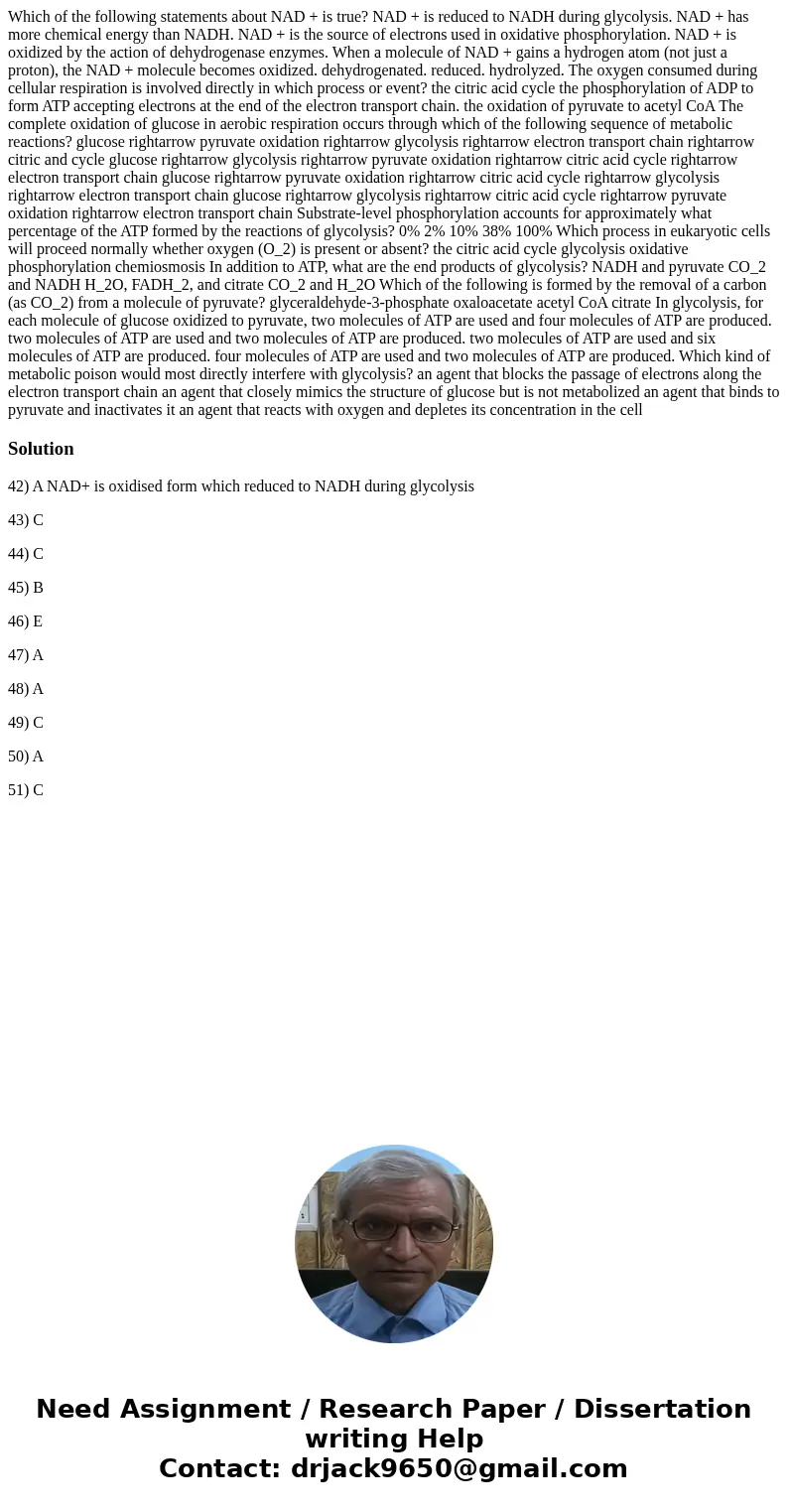Which of the following statements about NAD is true NAD is
Which of the following statements about NAD + is true? NAD + is reduced to NADH during glycolysis. NAD + has more chemical energy than NADH. NAD + is the source of electrons used in oxidative phosphorylation. NAD + is oxidized by the action of dehydrogenase enzymes. When a molecule of NAD + gains a hydrogen atom (not just a proton), the NAD + molecule becomes oxidized. dehydrogenated. reduced. hydrolyzed. The oxygen consumed during cellular respiration is involved directly in which process or event? the citric acid cycle the phosphorylation of ADP to form ATP accepting electrons at the end of the electron transport chain. the oxidation of pyruvate to acetyl CoA The complete oxidation of glucose in aerobic respiration occurs through which of the following sequence of metabolic reactions? glucose rightarrow pyruvate oxidation rightarrow glycolysis rightarrow electron transport chain rightarrow citric and cycle glucose rightarrow glycolysis rightarrow pyruvate oxidation rightarrow citric acid cycle rightarrow electron transport chain glucose rightarrow pyruvate oxidation rightarrow citric acid cycle rightarrow glycolysis rightarrow electron transport chain glucose rightarrow glycolysis rightarrow citric acid cycle rightarrow pyruvate oxidation rightarrow electron transport chain Substrate-level phosphorylation accounts for approximately what percentage of the ATP formed by the reactions of glycolysis? 0% 2% 10% 38% 100% Which process in eukaryotic cells will proceed normally whether oxygen (O_2) is present or absent? the citric acid cycle glycolysis oxidative phosphorylation chemiosmosis In addition to ATP, what are the end products of glycolysis? NADH and pyruvate CO_2 and NADH H_2O, FADH_2, and citrate CO_2 and H_2O Which of the following is formed by the removal of a carbon (as CO_2) from a molecule of pyruvate? glyceraldehyde-3-phosphate oxaloacetate acetyl CoA citrate In glycolysis, for each molecule of glucose oxidized to pyruvate, two molecules of ATP are used and four molecules of ATP are produced. two molecules of ATP are used and two molecules of ATP are produced. two molecules of ATP are used and six molecules of ATP are produced. four molecules of ATP are used and two molecules of ATP are produced. Which kind of metabolic poison would most directly interfere with glycolysis? an agent that blocks the passage of electrons along the electron transport chain an agent that closely mimics the structure of glucose but is not metabolized an agent that binds to pyruvate and inactivates it an agent that reacts with oxygen and depletes its concentration in the cell
Solution
42) A NAD+ is oxidised form which reduced to NADH during glycolysis
43) C
44) C
45) B
46) E
47) A
48) A
49) C
50) A
51) C

 Homework Sourse
Homework Sourse